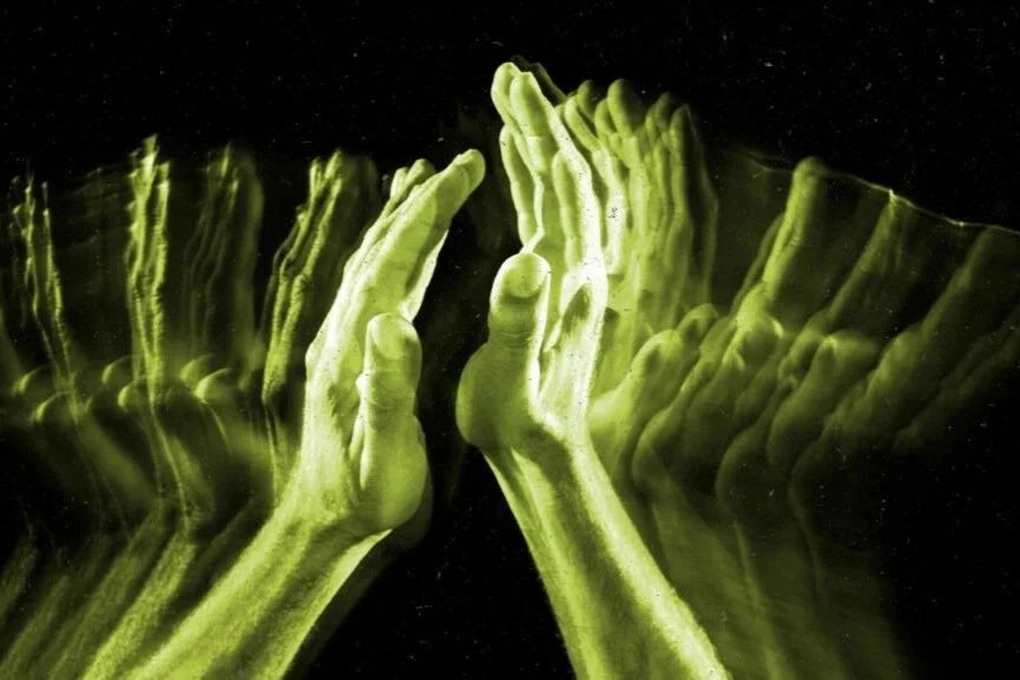
Alien Hand Syndrome (AHS) is a rare neurological condition (Photo: Medicalnewstoday).
People with this syndrome may suddenly have one of their hands act independently, without obeying any commands from the conscious brain.
Even that hand can perform dangerous, strange actions or put the subject in extremely ironic situations.
The name "Alien Hand Syndrome" (AHS) is not accidental.
It accurately describes the feeling of a sufferer when a hand suddenly behaves as if it has a mind of its own, even against their own will.
The hand acts on its own and the owner is helpless
One of the most famous depictions of this syndrome appears in the classic film Dr. Strangelove or: How I Learned to Stop Worrying and Love the Bomb (1964) directed by Stanley Kubrick.
In the film, the character played by Peter Sellers cannot control his right arm, constantly raising it in a fascist salute, completely contrary to his consciousness.
Although it is just a satirical cinematic element, the scene almost exactly recreates the real-life manifestation of people with alien hand syndrome.
According to experts, this syndrome occurs when a hand performs goal-directed actions without any control from the subject.
It is worth noting that these behaviors are not simply twitching or trembling, but can be very complex, such as unbuttoning a shirt, opening a bag, grabbing objects, extinguishing a cigarette, or even attacking oneself or others.
A typical case is that of Karen Byrne, 55 years old, living in New Jersey (USA), who suffered from epilepsy for many years and was treated by surgery to cut the corpus callosum - the nerve band connecting the two hemispheres of the brain.
After the successful surgery, Mrs. Karen no longer had seizures, but discovered that her left hand had unusual, uncontrollable behaviors.
"When the doctor called me and said, 'Karen, what are you doing? Your hand is taking off your shirt,' I was startled to discover that my left hand was automatically unbuttoning my shirt without me even knowing," she said.
Despite trying to rebutton the shirt with the right hand, the left hand continued to unbutton it in a defiant repetitive behavior.
Ms. Karen added that she once lit a cigarette and placed it in the ashtray, but her left hand suddenly reached out and extinguished the cigarette.
The syndrome even sneaks things out of her handbag, making her think she's lost them. "I can't get it to listen to me," she said.

The affected hand performs involuntary movements, such as grasping objects, stroking hair, unbuttoning clothes, or even self-harm (Photo: Ifl science).
Attack yourself, against your will
In more serious cases, the patient is actually attacked by an "alien" hand.
Medical literature once recorded a patient who unconsciously tried to strangle himself with a rope with his left hand. Although the other hand tried to pull it away, the two hands seemed to be in a battle that the mind could no longer control.
This phenomenon is explained by a disruption in communication between the two hemispheres of the brain, which often occurs after corpus callosum surgery - which is the last resort treatment for severe epilepsy patients.
When the corpus callosum is cut, the two hemispheres of the brain cannot exchange information effectively, resulting in one part of the brain - specifically the hemisphere that controls the non-dominant hand - being able to spontaneously issue commands to control the hand without going through the "censorship" of consciousness.
Typically, right-handed people will be affected in their left hand and vice versa, as the hemisphere of the brain that controls the non-dominant hand tends to function more independently after surgery.
This is why "alien hand" syndrome rarely appears in both hands at the same time.
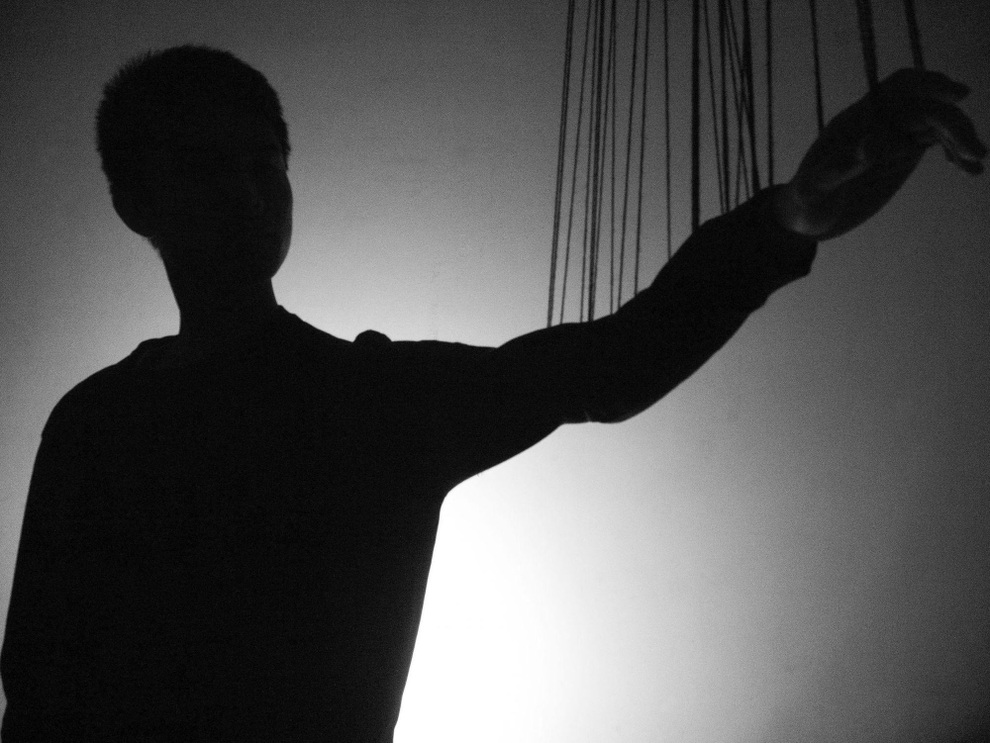
These movements are not twitches or tremors, but rather actions that appear purposeful, even though the person does not want to perform them (Photo: Gray Matters Journal).
Strange Brains and the Question of Second Consciousness
Neuroscientist Roger Sperry, who won the Nobel Prize for his work on the brain, once performed experiments on patients with corpus callosum amputations to test the ability of each hemisphere of the brain to process information.
In it, a left-handed man was asked to arrange blocks to match the pattern.
When he used his left hand, he did well. But when he switched to his right hand, he was completely confused, not knowing where to start. Even when his left hand tried to continue, his right hand deliberately interfered.
From this, Sperry drew a remarkable conclusion: Each hemisphere of the brain can function as an independent conscious system, capable of its own perception, memory, reasoning, and emotion.
In other words, inside the human brain there may exist two separate "selves" that are in harmony under normal conditions, but can conflict if the control boundaries are blurred.
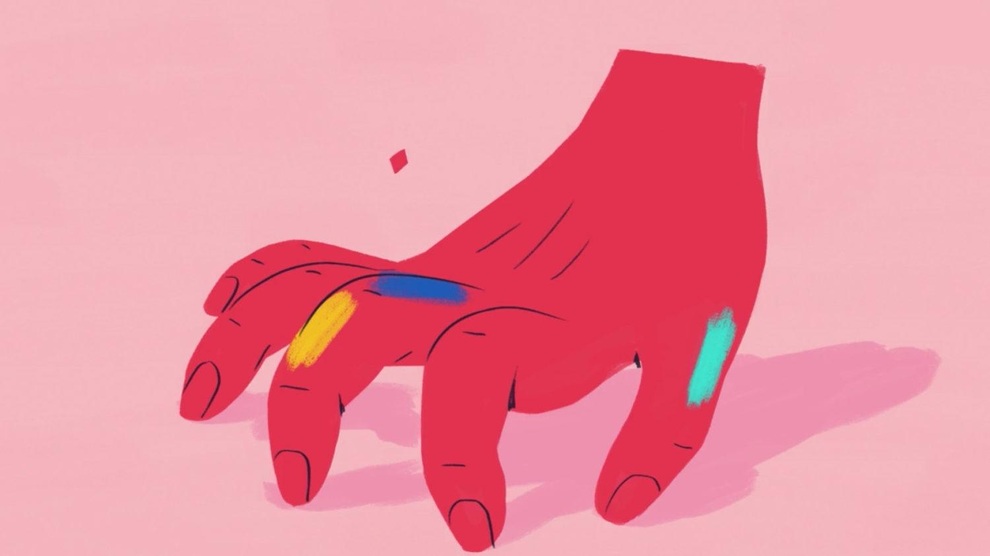
Currently, there is no specific treatment for alien hand syndrome (Photo: Wamu).
There is no cure yet.
Currently, there is no effective treatment for "alien hand" syndrome.
Some patients learn to minimize the effect by keeping the affected hand busy, such as holding something or placing it in a pocket, to prevent it from acting arbitrarily.
However, control is not easy and is rarely completely effective. Even basic movements can be disturbed, for example when the person wants to touch his nose, he touches his ear or shoulder instead.
The existence of this strange syndrome not only causes difficulties for the patient, but also opens up big questions in the field of neurology: Do humans really have only one unified consciousness, or are they living with many different egos?
Where do will and action fit into the complex maze of the brain?
Although there are still many mysteries yet to be discovered , the "alien hand" syndrome is a living testament to human complexity.
In the future, as medicine and neuroscience develop further, it is hoped that this strange phenomenon will be better understood, and sufferers will no longer have to live in fear of a part of their own body.
Source: https://dantri.com.vn/khoa-hoc/hoi-chung-ban-tay-nguoi-ngoai-hanh-tinh-ke-noi-loan-trong-chinh-co-the-20250526133335660.htm







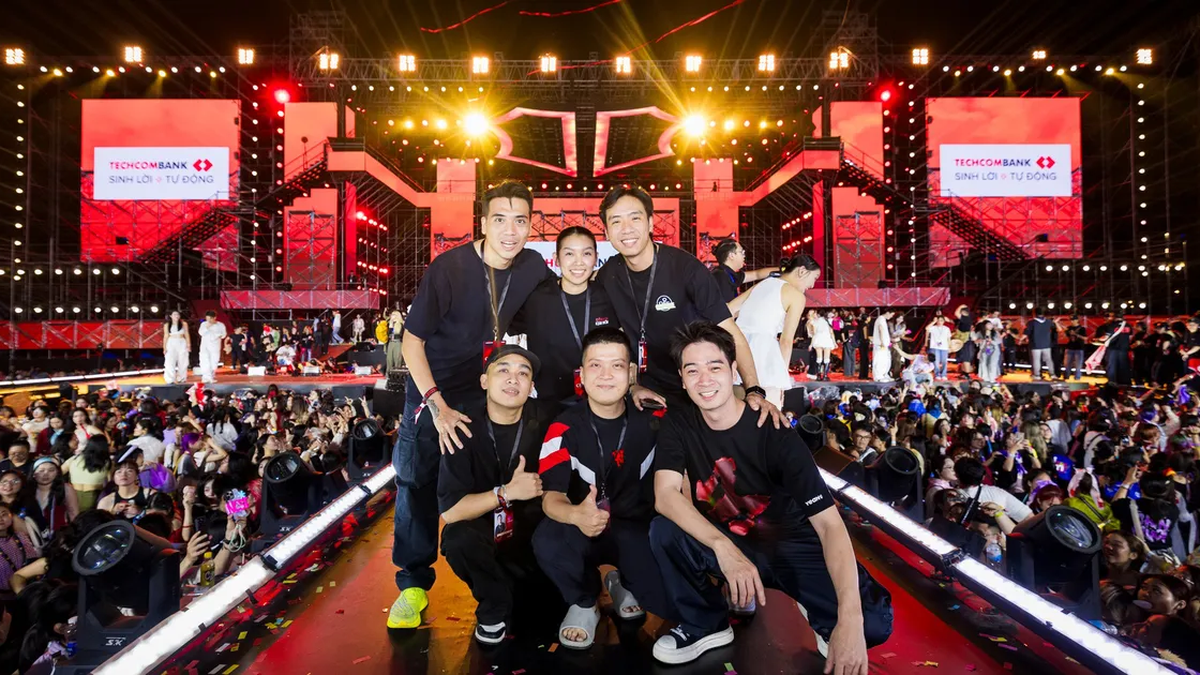
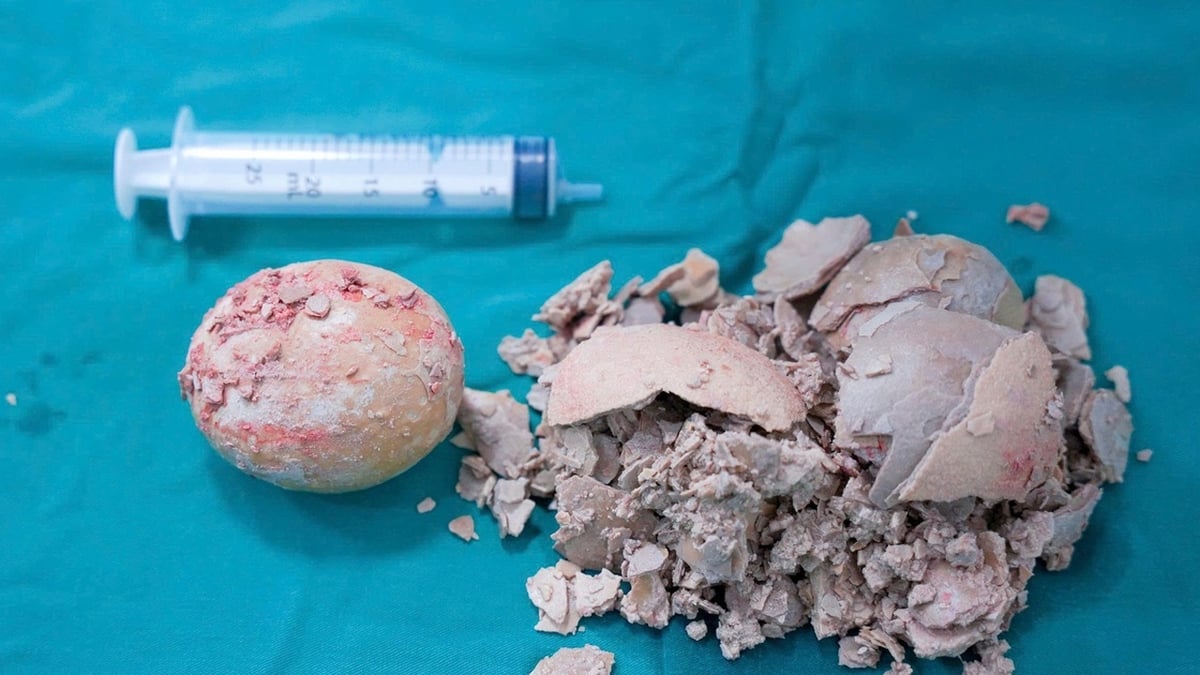










































![[Maritime News] More than 80% of global container shipping capacity is in the hands of MSC and major shipping alliances](https://vphoto.vietnam.vn/thumb/402x226/vietnam/resource/IMAGE/2025/7/16/6b4d586c984b4cbf8c5680352b9eaeb0)













































Comment (0)